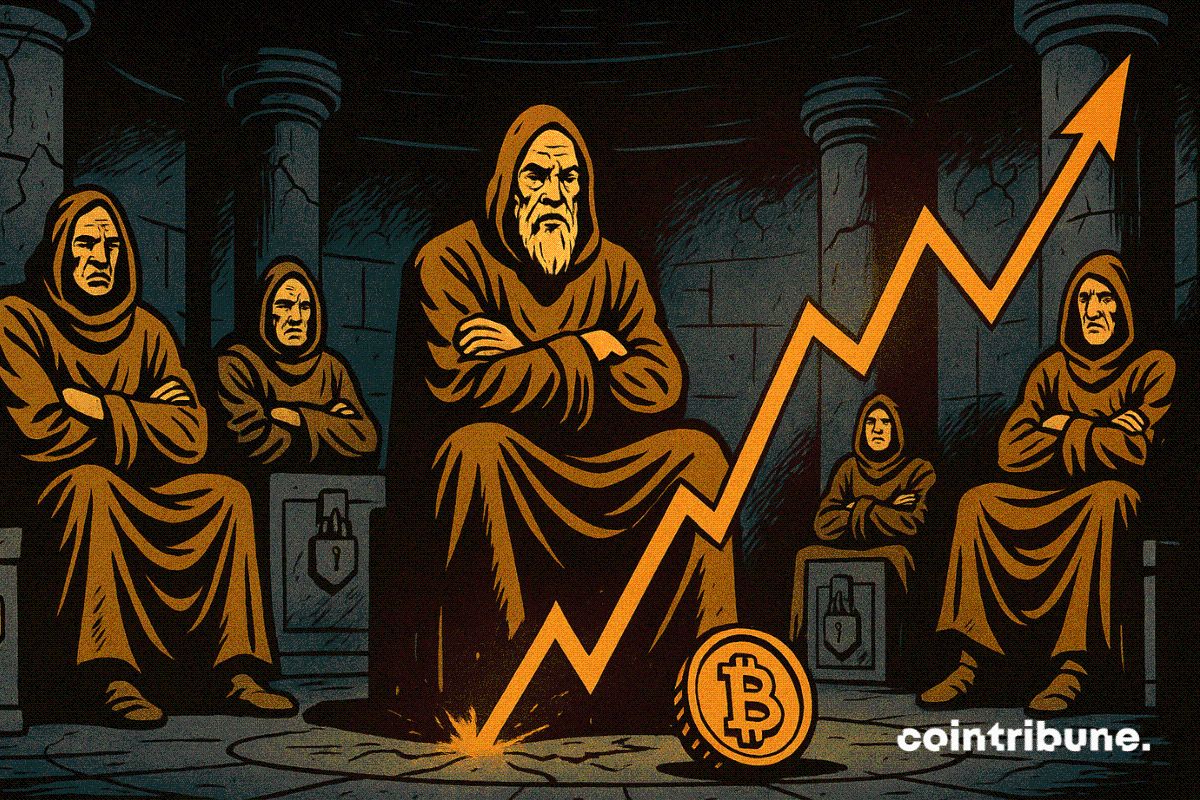Franklin Templeton Utilizes BNB Chain’s High Scalability to Accelerate Expansion of RWA Tokenization
- Franklin Templeton expands its Benji platform to BNB Chain, leveraging its scalable, low-cost infrastructure for real-world asset (RWA) tokenization. - BNB Chain, hosting $542M in tokenized assets, highlights fast settlement and compliance tools, aligning with institutional demand for secure infrastructure. - The partnership accelerates RWA adoption as the market projects $30T by 2030, bridging traditional finance and DeFi through cross-chain solutions.

Franklin Templeton, which manages $1.6 trillion in assets globally, has extended its proprietary Benji Technology Platform to the
This collaboration supports BNB Chain’s reputation as a leader in RWA tokenization. The network currently manages over $542 million in tokenized assets, placing it eighth globally. Sarah Song, who leads business development at BNB Chain, pointed out the network’s strengths: rapid transaction settlement, minimal fees, and compliance-oriented features. “Franklin Templeton’s move highlights BNB Chain’s capacity to facilitate regulated, real-world assets at scale,” she commented Franklin Templeton’s Benji Technology Platform Onboards BNB Chain [ 2 ]. The integration allows Franklin Templeton to broaden the reach of tokenized offerings such as mutual funds, stocks, and money market products, while meeting institutional needs for secure and efficient infrastructure.
The Benji platform has played a crucial role in advancing tokenization within traditional finance. Since its 2021 launch, it has powered the Franklin OnChain U.S. Government Money Fund (FOBXX), the first U.S.-registered mutual fund to use blockchain for transaction processing and ownership tracking. The fund currently holds $732 million in tokenized assets, with almost $480 million on Stellar. By expanding to BNB Chain, Franklin Templeton aims to benefit from the network’s near-instant finality and extremely low transaction fees, both vital for scaling RWA adoption Franklin Templeton brings Benji tokenization platform to BNB Chain [ 3 ].
Forecasts suggest the global RWA market could surge to $30 trillion by 2030, fueled by institutional interest in the efficiency and transparency that tokenization offers. BNB Chain’s ecosystem has already experienced notable growth, with total value locked (TVL) in decentralized finance (DeFi) protocols exceeding $9.87 billion. Leading projects like
Despite progress, institutional adoption still faces obstacles, including inconsistent international regulations and legal uncertainties regarding on-chain investments. Analysts at JPMorgan have identified enforceability and protocol dependability as major concerns. Nevertheless, Franklin Templeton’s expansion is part of a broader movement of traditional finance institutions embracing blockchain technology. Nasdaq’s recent proposal to enable trading of tokenized stocks and ETFs alongside conventional assets further demonstrates the industry’s evolution. By joining BNB Chain, Franklin Templeton is helping to bridge the gap between traditional finance (TradFi) and decentralized finance (DeFi), encouraging interoperability and liquidity across chains Franklin Templeton Adds BNB Chain as It Scales Tokenized Product Infrastructure [ 5 ].
This partnership also fits with BNB Chain’s broader strategy to attract institutional investment. The network’s $100 million liquidity incentive for centralized exchange listings and its focus on compliance-ready infrastructure enhance its appeal. Franklin Templeton’s Benji platform now joins other major institutions in utilizing BNB Chain’s modular ecosystem, which features collaborations with
As tokenization moves from experimental phases to widespread adoption, Franklin Templeton’s expansion onto BNB Chain underscores blockchain’s increasing role in mainstream finance. The company’s multi-chain approach—including Ethereum,
Disclaimer: The content of this article solely reflects the author's opinion and does not represent the platform in any capacity. This article is not intended to serve as a reference for making investment decisions.
You may also like
OG Strategies May Be Hurting Bitcoin’s Momentum

Is FET Nearing a Recovery Phase? This Key Emerging Fractal Suggests So

Core (CORE) Testing Key Resistance – Could This Pattern Trigger an Upside Breakout?

Zcash Halving 2025: Effects on the Market, Investor Reactions, and Tactical Investment Prospects
- Zcash's 2025 halving reduces block rewards by 50%, tightening supply and reinforcing its deflationary model. - The event coincided with a 1,172% price surge, driven by institutional investments and growing shielded transaction adoption. - Institutional demand, including Grayscale and Cypherpunk's ZEC acquisitions, highlights Zcash's strategic value in privacy-focused crypto markets. - Regulatory risks under MiCA and short-term volatility remain concerns, but long-term projections suggest potential for $1
